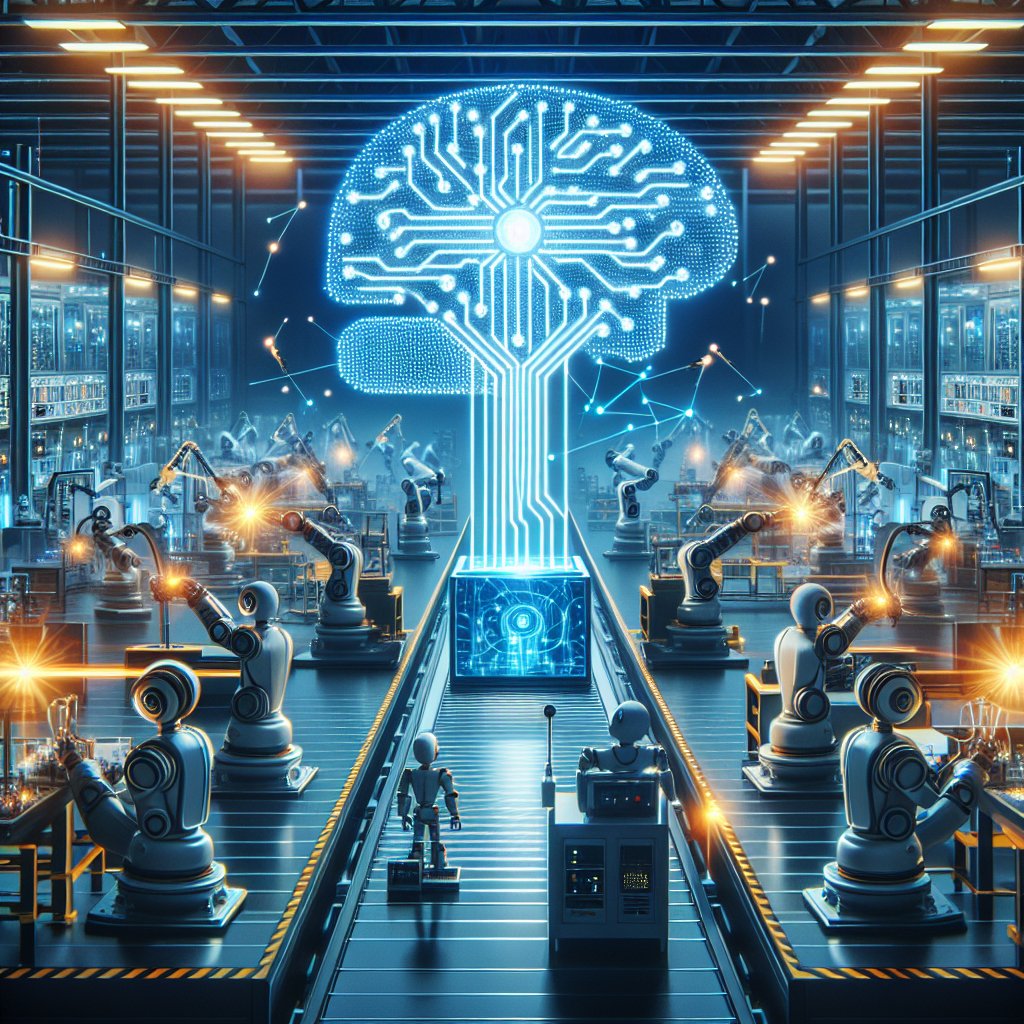In the fast-paced world of manufacturing, ensuring quality control is crucial to the success of a business. With the rise of artificial intelligence (AI) technology, manufacturers now have the ability to implement real-time quality control measures that can improve efficiency and reduce costly errors. By leveraging AI, manufacturers can detect defects, identify deviations from standard processes, and make instant adjustments to ensure that products meet the highest standards of quality. In this article, we will explore the benefits of using AI for real-time quality control in manufacturing, as well as some common questions and answers about this innovative technology.
AI technology has revolutionized the manufacturing industry by providing manufacturers with the ability to analyze vast amounts of data in real-time, enabling them to make more informed decisions and improve overall product quality. By using AI for quality control, manufacturers can detect defects in products as they are being produced, rather than waiting until the end of the production line to identify and address issues. This proactive approach not only reduces the likelihood of defective products reaching customers, but also helps manufacturers identify and address the root causes of quality issues more quickly.
One of the key benefits of using AI for real-time quality control in manufacturing is the ability to detect defects with a high level of accuracy. AI algorithms can analyze images, videos, and sensor data to identify even the smallest deviations from standard processes. This level of precision is crucial in industries where quality control is paramount, such as automotive, aerospace, and medical device manufacturing. By using AI to detect defects in real-time, manufacturers can prevent defective products from reaching customers, saving time and money in the long run.
Another benefit of using AI for real-time quality control in manufacturing is the ability to make instant adjustments to production processes. AI algorithms can analyze data from sensors and machines to identify trends and patterns that may indicate a potential quality issue. Manufacturers can then use this information to make immediate adjustments to production processes, such as changing machine settings or adjusting workflow procedures. This level of flexibility allows manufacturers to respond quickly to quality issues and ensure that products meet the highest standards of quality.
In addition to detecting defects and making instant adjustments, AI technology can also help manufacturers optimize production processes to improve overall quality. By analyzing data from sensors and machines, AI algorithms can identify inefficiencies in production processes and recommend improvements to increase efficiency and reduce errors. This proactive approach to quality control can help manufacturers streamline their operations, reduce waste, and improve overall product quality.
Despite the many benefits of using AI for real-time quality control in manufacturing, some manufacturers may have questions about how to implement this technology in their operations. Below are some common questions and answers about using AI for real-time quality control in manufacturing:
1. What types of data can AI analyze for quality control in manufacturing?
AI technology can analyze a wide range of data types, including images, videos, sensor data, and machine data. By analyzing this data in real-time, manufacturers can detect defects, identify trends, and make instant adjustments to production processes to ensure product quality.
2. How can manufacturers implement AI for real-time quality control in their operations?
Manufacturers can implement AI for real-time quality control by investing in AI-enabled sensors and machines that can collect and analyze data in real-time. By integrating AI technology into their production processes, manufacturers can improve quality control and optimize production processes.
3. What are some of the challenges of using AI for real-time quality control in manufacturing?
One of the main challenges of using AI for real-time quality control in manufacturing is the need for specialized skills and expertise to implement and maintain AI systems. Manufacturers may also face challenges in integrating AI technology into existing production processes and ensuring data security and privacy.
4. How can manufacturers measure the effectiveness of AI for real-time quality control?
Manufacturers can measure the effectiveness of AI for real-time quality control by tracking key performance indicators (KPIs) such as defect rates, production efficiency, and customer satisfaction. By analyzing these KPIs over time, manufacturers can assess the impact of AI technology on their quality control processes.
5. What are some best practices for implementing AI for real-time quality control in manufacturing?
Some best practices for implementing AI for real-time quality control in manufacturing include investing in AI-enabled sensors and machines, training employees on how to use AI technology, and continuously monitoring and optimizing AI systems to ensure maximum effectiveness.
In conclusion, using AI for real-time quality control in manufacturing offers numerous benefits, including the ability to detect defects with precision, make instant adjustments to production processes, and optimize operations to improve overall quality. By leveraging AI technology, manufacturers can enhance their quality control processes, reduce errors, and ensure that products meet the highest standards of quality. As AI technology continues to advance, manufacturers can expect to see even greater improvements in quality control and production efficiency in the years to come.

